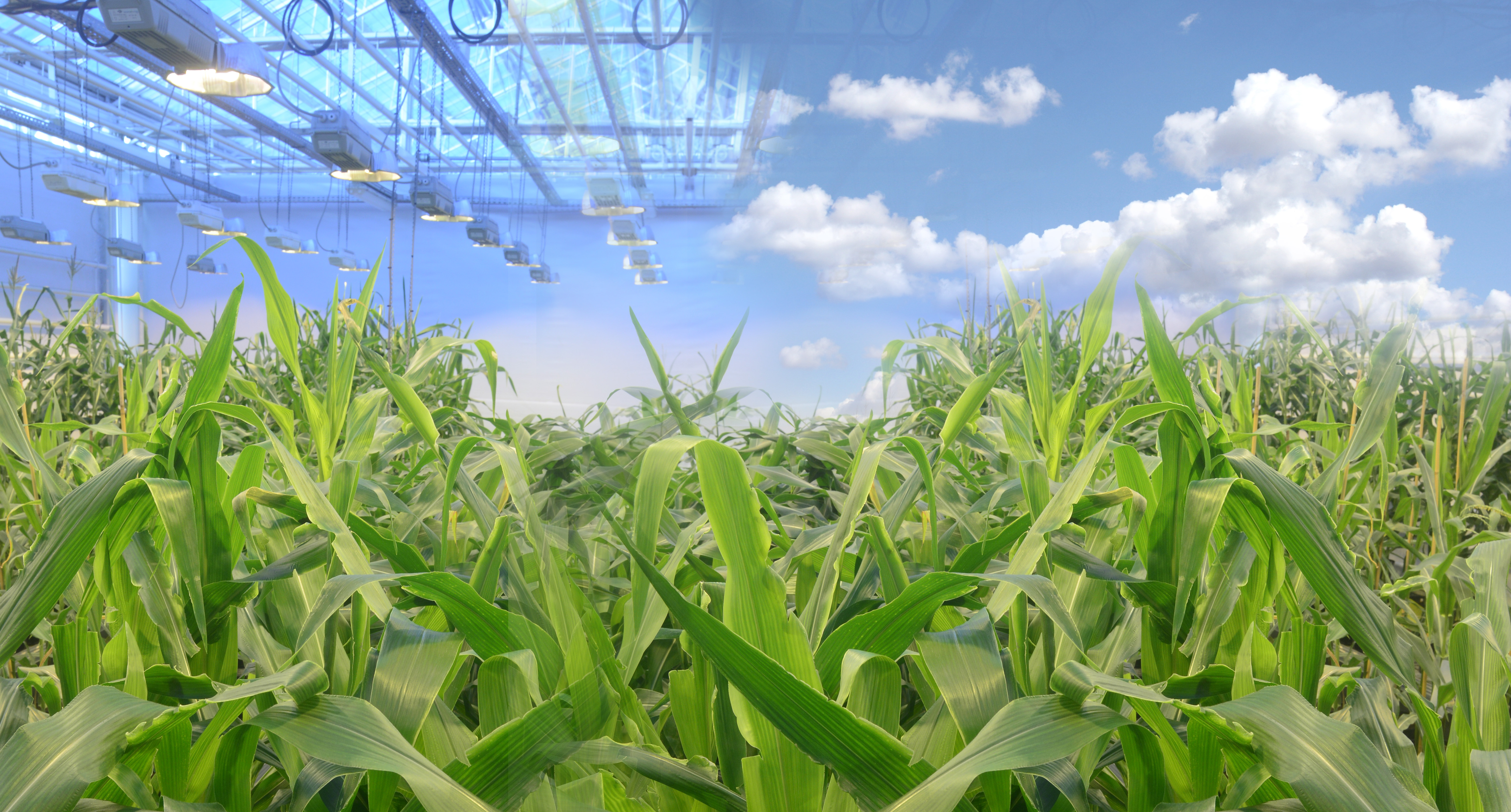What happens when we step outside our comfort zone?
Maize plants with improved growth characteristics in the greenhouse are tested in field trials. Unfortunately, the knowledge gained in the laboratory cannot easily be transferred to the field. One of the reasons for the low success rate in translating laboratory findings into field applications is the observation that laboratory-bred plants have very pronounced phenotypic and molecular differences compared to the same genotypes grown in the field. Our own proof-of-concept research has shown that genes that conferred stress tolerance by overexpression in the greenhouse were massively upregulated in the field, to a degree that could not be achieved in overexpression lines. To better understand this translation gap, our team is profiling field-grown plants using molecular approaches.
We do not only profile our plants outside their comfort zone, but we also want to challenge ourselves and others about the use of plant biotechnology in agriculture. In many countries around the world, plant biotechnology-derived crop varieties are not yet an integrated segment of today's agriculture, and the various stakeholders do not fully understand each other’s needs: Farmers are not always aware of the solutions that plant biotechnology can provide, while molecular biologists often do not target the traits that have the highest value to farmers and consumers. In addition, the putative relaxation on the use of certain new genetic engineering techniques (NGTs) in the EU could pave the way for gene-edited crops to be on EU citizens’ plates in the near future, which requires a good, evidence-based understanding of the technology by decision-makers and other stakeholders. Our team is actively involved in the NGT discussion and organizes events to familiarize the general public and value chain members with the potential of plant biotechnology and NGTs.

